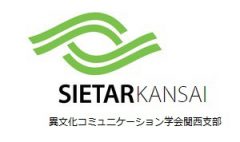Speaker: Jon Dujmovich
Date: October 26, 2014 (Sunday)
Time: 14:00-17:00
Venue: Namba Shimin Gakushu Center (Osaka City Municipal Lifelong Learning Center – Namba Branch), (O-CAT 4F, Tel 06 6643-7010)
Link to meeting location: http://www.osakademanabu.com/namba
Fee: Free for members and students; 500 yen for non-members and one-day JALT members
Language: English
*Attention SIETAR Kansai members: the venue is different from our usual
places (It will be in Namba).
Description of presentation:
Language educators often speak of using techniques and activities appropriate for each stage of language learning. But when it comes to incorporating cultural learning in language lessons, there is usually very little consideration given to the learners’ developmental stage of intercultural learning. The consequences of ill-matched activities can lead to reaffirmed or deeper cultural misunderstandings, and little or no growth in intercultural competency. In this workshop the presenter will demonstrate and discuss how to incorporate culture-based activities into the ESL/EFL classroom according to the learners’ intercultural developmental stage, age, language ability, and other factors. All activities and techniques demonstrated are grounded in intercultural communications theory and methodology coupled with ESL pedagogy. The presenter will provide opportunities to experiment with ideas and activities in a participatory workshop format while demonstrating how the activities can be adjusted for learning stage appropriateness. Participants will be able to incorporate the ideas and activities from this workshop into their classes, and immediately apply them to their lessons.
Profile of Presenter:
Jon Dujmovich is an Assistant Professor in the Faculty of Letters, Contemporary International English Dept. at Aichi University, Toyohashi. In 2008 Jon was awarded a grant to design and implement an English language intercultural communications pilot course for third year junior/high school students in Shizuoka Prefecture with the aim to prepare them for “international classes” in high school, for increased intercultural contact, and for study abroad. Prior to that Jon worked in the corporate world as an intercultural trainer and language instructor for Matsushita National/Panasonic Overseas Training Center and Excel International.
